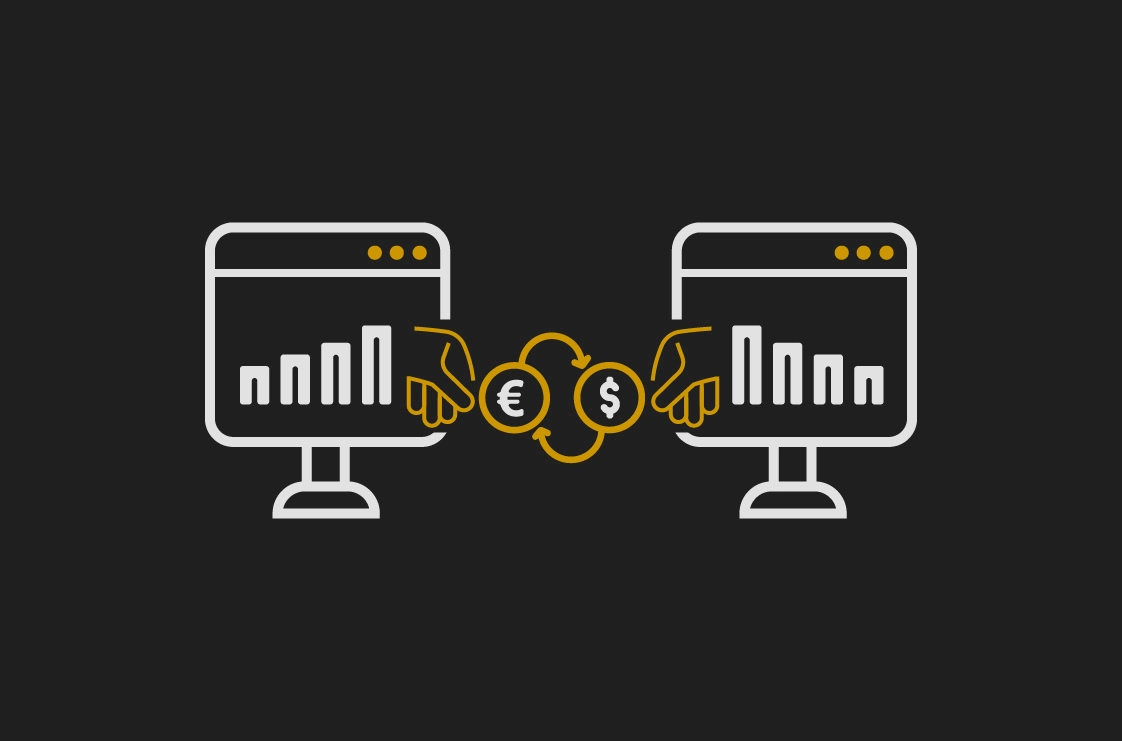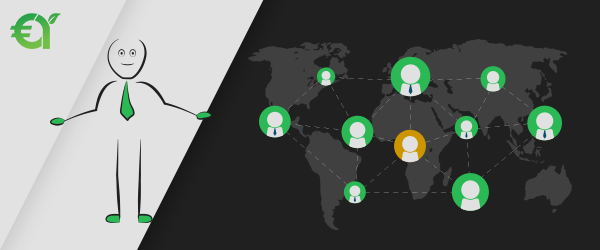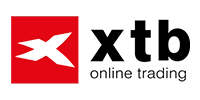Though trade exchange and investments have been a part of people’s daily routine in the developed world for years now, it is naive to assume that anyone can become a trader. Indeed, up until the early 2000s, it was quite laborious to get into this line of business altogether. Not only were sale events held solely in exchange buildings, one needed a special license to have access to such events. This all changed with the advent of the Internet, which essentially simplified the entire trading process for everyone. In the process, online trading was born. While some treat it more as a hobby, to others it has become a full-time occupation. Still, despite spreading like wildfire among people and across continents, even now there are many who do not know what online trading is, and, more importantly, how simple it is to become a trader.
II. Definitions
Electronic trading, which effectively allows investors to exchange financial assets over the Internet, enables users to make transactions online using brokers looking to make a profit. The market is wide-ranging and varied, including FOREX currency pairs, stocks and cryptocurrencies, just to name a few. It does not differ from any other exchange of assets other than it takes place online.
With the exponential growth in Internet usage at the turn of the new century, combined with the increasing availability of high-performance PCs and smartphones, online trading has risen markedly. The process has been buoyed by the growing reliance of the world economy on financial assets, such as stocks, bonds, ETFs, futures and forwards, FOREX and cryptocurrencies, etc. Expectations are that this trend will continue in the coming years.
FOREX currency pairs are arguably the most traded class of financial assets; and the FOREX market is by far the world’s largest financial market at some $6 trillion in daily trading. FOREX trading is all about buying and selling currencies in pairs, in an attempt to realize a profit off the fluctuations between currency strength. This means you might buy a currency pair when the spread is at a certain level, in anticipation of that spread widening due to a forthcoming market event. When you are able to sell your pairs at a wider spread than you bought them, you have successfully created a profit off their fluctuation. Though some traders choose rather “stable” currency pairs, e.g., USD/EUR, in a bid to accumulate conservative repeated profits, others pick exotic currency duos that promise larger profits. Needless to say, with larger profits come higher risks.
III. The Story of Online Trading
In the past, traders and investors had to directly communicate with the brokerage firm to execute deals on their behalf. However, much of this has changed with the rise of the Internet. Thanks to the World Wide Web, investors are now able to execute the deals by themselves. Brokerage firms make that process easier and cheaper, and they, in turn, offer convenient online trading platforms to their clients, the most famous of which is Metatrader.
IV. Online Trading Platforms
Online trading platforms are programs that allow investors to open, close and control a trade deal remotely. FOREX brokers often offer these programs free of charge. Trading platforms include full tech and trade support, so you are never left without an answer to any question or support for a problem. They help traders by providing them with access to market indices through which they can determine the market direction of the asset they are trading.
Thanks to online trading, not only can investors follow market developments in real time, they are also able to place “buy” and “sell” orders, as well as “stop-loss”, defined as an order that traders place with their broker in order to sell a security when it reaches a particular price. We can, therefore, make the assertion that the Internet has really changed the way financial assets are traded, by saving on time, cutting costs, and making the experience smoother overall.
Online trading gave traders from across the world the opportunity to enter financial markets, trade traditional currencies, cryptocurrencies, oil, gold and other classes of assets. Further, trading is available 24 hours, five days a week. All you need is a personal computer and Internet access.
V. How Does Online Trading Actually Work?
Despite the fact that online trading allows users to strike deals instantly, one thing remains the same: a private trader would still need a broker to be able to trade. For his part, the broker provides the trader with his trading platform – the software that the trader will be using to help clinch the deal. Most of the work nowadays is done by, and on, that trading platform. This is in contrast to the early, pre-Internet days, when the process was lengthy, requiring the trader to actually call the broker and ask him to open the deal on the one hand, and needing the broker to personally look for and find a counterparty on the stock exchange to seal that deal on the other.
VI. Rules Governing Online Trading
All online trading activities, including in the area of FOREX, are subject to the laws of supply and demand: an increase in supply will lower prices if not accompanied by increased demand. By the same token, an increase in demand will raise prices unless accompanied by increased supply. Political and economic news (positive and negative) each have immediate ramifications on trading activity and price movements. This is because major world news drives sentiment and affects confidence in certain markets or instruments, causing traders to sell or buy, which triggers ripples along the supply and demand curve.
VII. How to Trade Online?
The guiding principle to any online trading activity is to buy an asset, wait for its price to rise, and then sell it to profit from the price appreciation.
The bourse, simply put, is a market like any market, where there is a commercial exchange. That is to say, buying and selling. Capital markets differ depending on the assets that are being bought and sold. For example, there is a market for stocks. There is another for gold, metals, cryptocurrencies (such as Bitcoin) and FOREX, etc.
VIII. How to Start Trading Over the Internet?
You can open an account with some of the world’s most famous and reputable trading companies via the Arincen Website. One of our staff members will accompany you step by step until you achieve your goals. For more details about our suite of comprehensive services, see the section toward the end of this article.
IX. CFDs
Considered as one of the fastest and cheapest ways to profit from financial markets, a CFD is an arrangement made in financial derivatives trading whereby the differences in the settlement between the open and closing trade prices are cash-settled. There is no delivery of physical goods or securities with CFDs. For example, if you anticipate the price of gold will rise against the US dollar, then you will buy gold and sell USDs, at a fixed price. While you would not physically “own” gold, you would have nonetheless opened a position. Should you see the price of gold rise vis-à-vis the USD, then you will offer your holding for sale. Again, the net difference of the gain or loss will be cash-settled through your account.
CFDs are popular among traders because they are often traded on margin. This means that the brokerage firm allows investors to borrow money to increase leverage or the size of the position to sufficiently gain. It also means you can start trading with a relatively small sum of money.
X. FOREX Trading
FOREX is the marketplace where various national currencies are traded. When trading currencies, they are listed in pairs, such as the EUR/USD or the USD/JPY. These represent the Euro (EUR) versus the American USD and the American USD versus the Japanese Yen (JPY), respectively.
What moves the FOREX market are the forces of supply and demand. Though there are hundreds of currencies to be traded globally, according to the laws of international supply and demand, the most important currencies are:
- The US dollar (USD).
- The Euro (EUR).
- The British Pound (GBP).
- The Japanese Yen (JPY).
- The Swiss Franc (CHF).
Take, for example, the USD/EUR pair. You cannot say that the price of the USD is “3.” Instead, you must say that the price of one USD is 3 Euros.
The most common currency pairs in the FOREX market include:
- EUR/USD.
- USD/JPY.
- GBP/USD.
- EUR/JPY.
One of the most important features that distinguish the FOREX market from all other financial markets is margin trading. By trading FOREX on the margin, traders are able to increase their position size. In effect, margin allows traders to open leveraged trading positions, giving them more exposure to the markets with a smaller initial capital outlay. Of course, margin trading can be a double-edged sword. It magnifies both profits and losses, for these are based on the full value of the trade, not just the amount required to open it.
XI. Trading Cryptocurrencies
Digital currencies are often defined as “a form of currency that is available only in digital or electronic form, and not in physical form." It is also called digital money, electronic money, electronic currency, or cyber cash.” Examples of digital currencies include cryptocurrencies, virtual currencies, central bank digital currencies and e-Cash.
Even though digital currencies exhibit properties similar to other, more traditional currencies, they do not have a physical form of banknotes and coins. Therefore, they allow for nearly instantaneous transactions.
Bitcoin, considered by many as a trailblazer in the world of cryptocurrencies, has ushered in a wave of over 2,000 cryptocurrencies built on a decentralized peer-to-peer network. Chief among these are Ethereum, Bitcoin Cash, Ripple and Litecoin, to name a few.
In contrast to stock market trading (discussed below), cryptocurrencies are far more volatile. Indeed, a 300% monthly rise followed by a 30% daily drop is considered quite normal for cryptocurrencies.
XII. Stocks Trading
Stock markets refer to the collection of markets and exchanges where regular activities of buying, selling and issuance of shares of publicly-held companies take place. Such activity occurs in central physical bourses that have opening and closing hours. Among the most famous exchanges are the New York Stock Exchange and the NASDAQ, which are both located in the Big Apple.
The buying and selling of stocks through CFDs allow traders to buy and sell shares in international companies listed in New York, on the NASDAQ, and the London Stock Exchange, among others, without any fees or restrictions.
There are two types of stock market traders: A “speculator,” who gets into the market looking for short-term gain. They buy and sell quickly, as soon as there is a profit opportunity. By sharp contrast is the “investor,” who buys shares in a company and is looking to invest money into that business. Such investors are in the market for the long term. Their expected returns come from increases in the stock price, as well as from the annual dividend that company ends up paying.
XIII. ETFs
In 1997, billionaire Warren Buffett – considered by many as one of the most successful investors in the world with a net worth of $78.9 billion as of August 2020 – said that “most investors, whether individual or institutional, will find that the best way to invest in stocks is though index ETFs that offer low service charges.” He added, “These investors will surely achieve a better performance than most investment professionals in the marketplace.” The most famous indices are America’s Dow Jones and Germany’s Dax. (By way of definition, please note that an index ETF is designed specifically to replicate a benchmark index, such as the Dow Jones Industrial Average, Nasdaq 100, or the S&P 500. Index ETFs are becoming increasingly popular as they provide investors with low-cost access to diversified, passive indexed strategies.)
XIV. Binary Options
A binary option is a financial instrument that allows traders to bet on how the price of an asset would change within a specific amount of time. In a standard binary option, there are three parameters to bear in mind:
- The direction of a price change (up/down).
- The expiration date.
- The Transaction volume (rate).
Binary options are attractive and risky at the same time. They allow for a big profit, even if the price changes are not that large. The only thing the trader needs is for the price to change at least one point in the specified direction and to continue holding it there until the expiration date. In this case, the trader will get 80-90% of his bid. By the same token, if the price goes in the wrong direction, even if by a single point, the trader will lose his bid. Let’s give an example to illustrate how a binary option actually works.
Assume a trader has starting capital of $1,000 and is interested in opening an option for EUR/USD with the following parameters:
- Direction – Up.
- Period – 5 minutes.
- Rate – 100 dollars.
Depending on the conditions the broker has set, if the price goes up by just one point during these five minutes, the trader will get $80-90 dollars in profits. However, if the price goes in the other direction, the trader will lose $100.
XV. Futures Contract
A futures contract is defined as “a legal agreement to buy or sell a particular commodity asset, or security at a predetermined price at a specified time in the future.” No direct exchange of “goods or money” takes place. The buyer of a futures contract is taking on the obligation to buy the underlying asset when the futures contract expires. Meanwhile, the seller of the futures contract is taking on the obligation to provide the underlying asset at the expiration date. However, in reality, the buyer doesn’t usually need the actual commodities. Instead, he needs the “right” to them so that he can make a speculative profit from trading this product. The buyer is thus able to sell futures to other traders.
XVI. Metals Trading
Metals trading typically involves gold and silver, and, to a lesser extent, platinum. Other metals that can be bought and sold on the FOREX market include copper, nickel and aluminum, just to name a few. It is thought that metals trading is closely linked to the outlook for the overall global economy, as well as to the sentiment surrounding major currencies.
XVII. Agriculture/Oil and Gas
Metals aside, two other FOREX trading categories come from the agriculture sector (e.g., wheat) and from the hydrocarbon industry (e.g., oil and gas). These have their own clientele and rank in straight after trading activity in general currency pairs.
XVIII. Pros and Cons of Online Trading
Online trading has been a game changer to asset exchange. As with everything, it has its pros and cons. On the positive side of the equation, online trading offers the perspective of unlimited income. It is also convenient in that you can set your own hours, without having to stick to a specific timetable or a location. Further, you can start trading while continuing to do your regular nine-to-five job. Finally, there is no pre-set minimum, meaning you can effectively start trading with what you have/can afford.
On the negative side of the equation come the relatively high risks associated with such activities. These are very well documented in the literature. The fact that you are your own boss and are, therefore, responsible for your own actions doesn’t help either.
XIX. Can Anyone Become an Online Successful Trader?
The way forward for a successful trader involves exhibiting lots of patience and to never give up. That being said, there is no “one-size-fits-all” recipe for success. There are, however, certain steps that are unavoidable for anyone wishing to invest in online trading. These include, first, the need to strategize well and answer the following questions, among others: Will this be a hobby or a full-time job? How much time and money are you willing to invest? You also have to invest prudently – only commit money you can afford to lose and always assess the risks carefully. Remember, you need to adopt a trading strategy. Know your market and pick the types of assets in which you want to invest. While you can start by adopting someone else’s already-proven strategy, you will only achieve great success once you conceptualize and have your very own strategy. Finally, start small or, even better, begin trading with a demo account. Only switch to a real account when your demo portfolio is starting to turn in handsome profits.
XX. The Role of Arincen in Online Trading
Arincen plays an important role in helping and supporting Arab investors to successfully trade over the Internet. It does so by providing FOREX, commodity, and cryptocurrency analysis, updated daily. To achieve this goal, we have set up a social recommendations platform, where trading experts can make different recommendations to investors from all walks of life – online. Arincen also brings together traders and experts to exchange ideas and opinions. Through Arincen, you can open an account with one of the companies we deal with and receive all the guidance you need to achieve your goals.
XXI. Conclusion
Online trading is very promising financially, yet complex and also risky as we have shown. While it can allow you to gain financial independence with time, the road to becoming a successful online trader is long and bumpy. One of the very first things experienced traders will tell you is that it is easy to get carried away when you first start. Try, therefore, not to panic if the market moves adversely and/or it doesn’t look to be going your way. Staying calm throughout the process will help you make well-informed and sensible decisions during the good and the bad times. Needless to say, nothing comes easily and so there is no harm in trying. However, be cautious and think wisely at all times.








